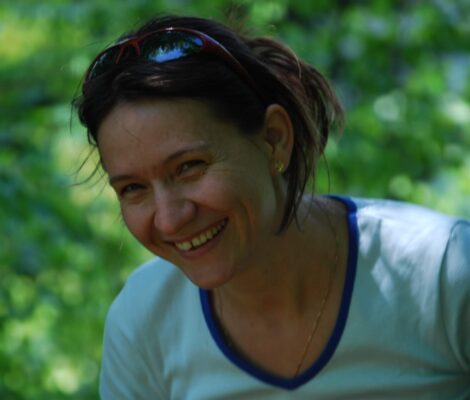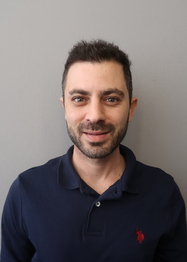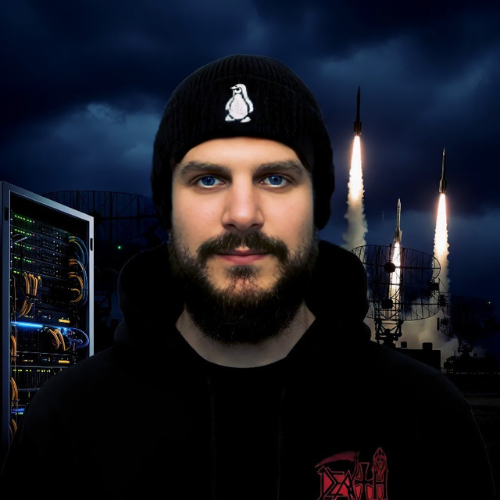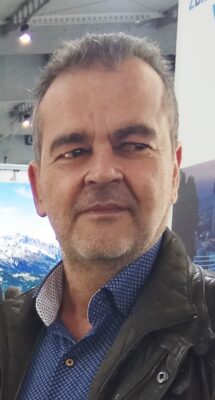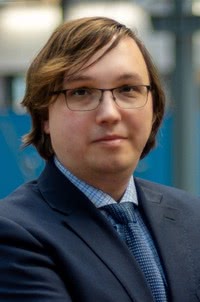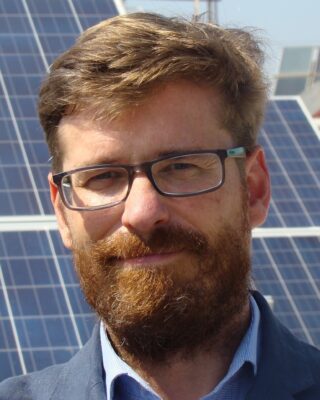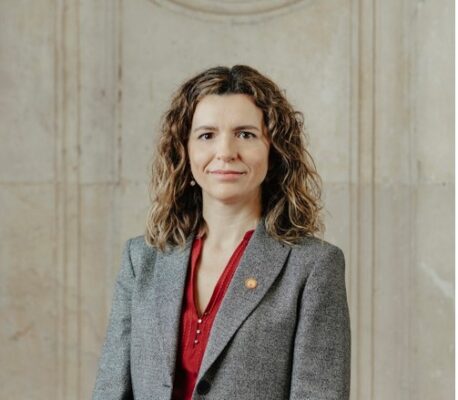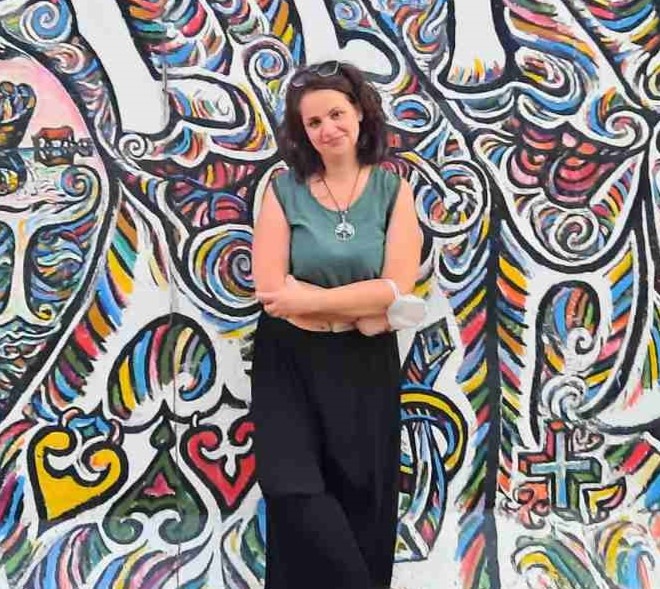|
|
Angelos K. Marnerides – Coordinator UCY Prof. Angelos K. Marnerides is a Prof. (Asst.) of Cyber Physical Systems Security in the Department of Electrical and Computer Engineering (ECE) and a Faculty Member at the KIOS Research and Innovation Centre of Excellence, of the University of Cyprus. Prior to that he was an Prof. (Assoc.) in the School of Computing Science (SoCS) at the University of Glasgow (UofG), UK where he led the SoCS Cyber Security research strategy as the head of the Glasgow Cyber Defence Group (GCDG). He still maintains an Honorary Prof. (Assoc.) position at UofG. Angelos’ holds a BSc(Hons) in Computing Science from Middlesex University (London, UK) and an MSc (Distinction) and PhD in Computer Science from Lancaster University (Lancaster, UK). His research revolves around the formalisation, design and implementation of measurement-based security and resilience mechanisms addressing challenges resulted by the intersection of the Internet and the Internet of Things (IoT) with cyber-physical systems that were traditionally isolated (e.g., Critical National Infrastructures). His research philosophy is in designing secure and resilient systems with strong theoretical foundations and in providing practical, data-driven implementations that are deployable in the real world. His research has received significant funding in excess of €9M+ from the industry (e.g., Fujitsu, BAE, Raytheon), funding bodies (e.g., EU, IUK, EPSRC) and UK agencies (e.g., UK MoD Dstl, GCHQ). Within COCOON, Angelos is the project’s Technical Coordinator, he is the leader of WP1, WP4 and he will also oversee all activities related to the project’s research and software development of the COCOON cyber protection services for the modern power grid in the 4 distinct COCOON pilots. |
|
|
Mathaios Panteli Mathaios Panteli holds an Assistant Professor position within the Department of Electrical and Computer Engineering, University of Cyprus since January 2021. He also holds an Honorary Lecturer position in Department of Electrical and Electronic Engineering, Imperial College London, UK, and he is currently an Andre Jaumotte Chair Professor in Université Libre de Bruxelles (by the Royal Academy of Belgium). Prior to joining UCY, he was a Lecturer at the Power and Energy Division of The University of Manchester, serving as the Deputy Lead of the Sustainable Energy Systems research cluster. His academic qualifications include an M.Eng. degree from Aristotle University of Thessaloniki, Greece, in 2009, and a Ph.D. degree in Electrical Power Engineering from The University of Manchester, U.K., in 2013. Through his academic career, Mathaios has successfully developed a multi-million research portfolio, attracting funding from research councils, industry, and European Commission. His main research interests include techno-economic reliability, resilience and flexibility assessment of future low-carbon energy systems, grid integration of renewable energy sources and integrated modelling and analysis of co-dependent critical infrastructures. He has published over 100 research articles in high-impact peer-reviewed journals and conference proceedings. Mathaios is an IEEE Senior Member, an IET Chartered Engineer (CEng), the Chair of the CIGRE working group C4.47 “Power System Resilience” and the CIGRE Cyprus National Committee, an invited member of multiple IEEE, CIGRE and CIRED working groups, and a Fellow of the Higher Education Academy (UK). He serves as an Associate Editor in IEEE Transactions on Sustainable Energy, IEEE Journal of Modern Power Systems and Clean Energy, and IET Renewable Power Generation. He is the recipient of the prestigious 2018 Newton Prize and he led the team receiving the 2022 Innovation Radar Prize by the European Commission. |
|
|
Maria K. Michael Maria K. Michael is an Associate Professor at the Department of Electrical and Computer Engineering (ECE), at the University of Cyprus. She is also a co-founding academic member of the KIOS Research and Innovation Center of Excellence, at the University of Cyprus, which currently supports ~200 researchers and engineers specializing in the areas of Intelligent Monitoring, Control and Security of Critical Infrastructure Systems. Prior to joining the University of Cyprus, she taught as a Lecturer at the ECE Department at Southern Illinois University, and as an Assistant Professor of Computer Science and Engineering at the University of Notre Dame, USA. Maria holds BSc and MSc degrees in Computer Science, and a Ph.D. in Engineering Sciences (specialization in Computer Engineering), from Southern Illinois University, USA. At the University of Cyprus, she leads research activities in the areas of dependability, security and optimization in embedded and IoT-enabled cyber-physical systems. She also has extensive expertise in the areas of test, reliability and safety of integrated circuits and (safety-critical) embedded systems. Her current research focuses on hardware-enabled security and cyber-security in intelligent embedded systems and cyber-physical systems, performance and dependability optimization of AI/ML edge intelligence, reliability and security of resource-constrained edge-based accelerators, with applications in critical infrastructure systems such as smart grids, UAVs, robotics and autonomous vehicles. She has published more than 100 articles in high-impact peer-reviewed journals and conference proceedings. Maria’s research has been supported by local and international agencies and industry in Europe and the United States, such as EU FP7, EU H2020, EU COST, NSF, Intel Corp., and the Cyprus Research and Innovation Foundation, receiving significant funding to lead and participate in more than 26 funded research programs/grants. She currently leads the KIOS teams in the H2020 SESAME project (Secure and Safe Multi-Robot Systems) and the EDF ACTING project (Advanced European platform and network of Cybersecurity training and exercises centers). She is also leading tasks for vulnerability analysis and mitigation techniques from cyber-security threats, in the H2020 ELECTRON project (Resilient and Self-healed Electrical Power Nanogrid). |
|
|
Irina Ciornei Dr. Irina Ciornei is with KIOS Research and Innovation Centre of Excellence, University of Cyprus (UCY), where she acts as post-doctoral research associate and lead technical expert for various European, national, and industry-funded research and innovation projects, such as Smart5Grid, EMPOWER, ELECTRON, DCNextEvE among many others. Irina holds a BSc (2002) in Electrical Power Systems from TUIASI (Romania), a joint MSc (2003) in Energy & Environmental Science from University of Poitiers (France) and from TUIASI, and a Ph.D (2012) in Electrical Engineering from UCY, Cyprus. Irina is a Marie Curie Individual Fellow with expertise in DC microgrids and she was a visiting scholar at various prestigious research groups in Europe such as VTT – Finland, IBM – Ireland, Aalborg University – Denmark or University Politechnica of Bucharest – Romania. Her primary research focus lies within the expansive field of modern power systems. She investigates their operation, monitoring, and control, particularly in the context of transitioning to green energy sources and enhancing resilience against cyber or natural threats. Her research also centers on digital services for smart grids, encompassing advanced communication, cybersecurity and digital twin technologies. Irina has published in highly prestigious scientific journals and conference proceedings, where she also serves regularly as reviewer or editor. Irina is a Senior Member of the IEEE and delegated Romanian National Expert for IEC Standardization Working Group for Power Quality Measurement Methods. |
|
|
Demetris Theocharides Demetris Theocharides has received his BSc in the Department of Information Technology from the Alexander Technological Educational Institute of Thessaloniki. |
|
|
Vasilis Leropoulos Vasilis Ieropoulos is a dedicated cybersecurity researcher specializing in machine learning and threat detection, with a focus on securing IoT devices and AI models. He is currently pursuing a Ph.D. in Cybersecurity Analytics at Cardiff University, UK, and has previously completed an M.Sc. in Cybersecurity (Distinction) and a B.Sc. (Hons) in Computer Science. Vasilis has extensive experience in both research and industry, including positions at TrustworthyAI and Toshiba Europe, where he developed methods for detecting and mitigating attacks on machine learning systems. He is also an experienced instructor in Python programming and has developed software solutions for municipal projects. Vasilis manages Cyprus’s satellite image and radiosonde tracking stations and has contributed to ADS-B plane tracking, demonstrating expertise in embedded systems and IoT security. His technical skills include C, C++, C#, Python, ARM Assembly, machine learning frameworks, and containerized deployment tools such as Docker and Kubernetes. He has presented his research internationally at conferences including Bsides Cymru, IEEE-CSR, and THCon, and has been recognized with awards such as MVP at Easter CTF, Cardiff University. |
|
|
Philip Westbroek Philip Westbroek works for the Dutch regional grid operator Enexis; he is responsible for OT security. Philip is also a certified IEC 62443 trainer for ISA Europe. He is a cybersecurity and data communications enthusiast with more than 20 years of experience in these fields; he holds a master’s degree in information security management. During the past 16 years, he was responsible for the design and realization of a number of smart grid projects. Among these projects were a cryptoserver solution for smart meters and the Enexis Private MVNO solution. This award-winning mobile M2M data communications solution enables Enexis to switch from one mobile operator to another without swapping the SIM cards Enexis uses in their RTUs, smart meters, and other M2M equipment. Philip was the lead implementer of the Enexis ISMS for the OT environment; this ISMS was certified for ISO 27001:2017 in 2020. |
|
|
Filip Holik Dr. Filip Holik is a research associate at the University of Glasgow (UofG), UK, where he is responsible for research in programmable networks for critical infrastructure. Filip holds a PhD in Electrical Engineering and Informatics from the University of Pardubice (Czechia) where he specialized in OpenFlow-based software-defined networks and their security applications in IoT networks. Prior to the UofG role, Filip worked as a researcher at the Norwegian University of Science and Technology (Gjøvik, Norway) where he was responsible for developing a simulator of digital substations with emulated communication for cybersecurity awareness. Filip maintains an external associate professor position at NTNU and is leading cybersecurity courses for business professionals in Oslo. |
|
|
Dimitrios Pezaros Dimitrios Pezaros is Professor of Computer Networks and director of the Networked Systems and Cyberdefense laboratories in the School of Computing Science at the University of Glasgow, where he currently holds the Dstl & CINIF / RAEng Research Chair in Digital Resilience for Critical National Infrastructure. He has received significant funding for his research from UK, European, and international funding agencies and industry, and has published widely in the areas of computer communications, network management, and network resilience. His research is focusing on assuring the operation of future networked infrastructures through the exploitation of closed-loop and machine-learning-based monitoring and control algorithms, and using programmable networking and function virtualization technologies. Prof Pezaros holds BSc and PhD degrees in Computer Science from Lancaster University, UK. He is a chartered engineer, a fellow of the BCS and the IET, and a senior member of the IEEE and the ACM. |
|
|
Awais Aziz Shah Awais Aziz Shah is working as a lecturer in the school of computing science at the University of Glasgow (UoG). He is a senior member IEEE, member of the Glasgow Systems Section (GLASS) and Networked Systems Research Lab, UoG. His research is focused towards using Network Programmability and Resilience using Software-Defined Networks (SDN), Network Function Virtualisation (NFV) and virtualisation technologies such as containers to virtualise the modern network infrastructures in achieving low-latency, energy efficiency, Quality of Service (QoS), and optimal Virtual Network Functions (VNF) chain deployments. He is also working on detecting threats to the Critical Infrastructures (CI) such as Industrial Control Systems (ICS) and Smart Grids using Machine Learning techniques. During his PhD at the Telematics Lab, Politecnico di Bari, Italy, he developed an SDN-based hierarchical framework for the orchestration and management of VNFs in Optical Transport Networks. Through this work, in collaboration with industrial partners from Telco industry in Italy (SMOptics and Experis), he simulated large-scale optical nodes been monitored by multiple levels of SDN controllers and centeralised network service orchestrator inside the OpenStack Cloud. Furthermore, he has worked on developing a routing strategy for Transport Networks using SDN to ensure energy efficiency and at the same time QoS. Moreover, he has served as a Research Fellow from December 2021 to September 2022 in the Communication, Sensing and Imaging group on several use cases under the umbrella of Scotland 5G testbed that includes orchestration of services on the 5G testbed using SDN and Internet of Things frameworks. He is a senior member of IEEE. |
|
|
Tahira Mahboob Tahira Mahboob is working as an associate researcher at University of Glasgow, UK. She is responsible for developing intelligent in-network cyber-protection solutions for the critical networking infrastructure. She is a registered engineer, and a member of IEEE and WIE. She served as post-doctoral researcher at Kyung Hee University, Republic of Korea. She received her Ph.D. in Computer Engineering from Sungkyunkwan University, Republic of Korea. She served as a faculty member at ITU and FJWU, Pakistan. Her research interests include AI-enabled communication networks, 5G and beyond, machine learning, deep learning, programmable networking, and network function virtualization. |
 |
Daniel Morales Wagner Master in Electrical Energy Systems and Industrial Engineer specialized in Electrical Power Systems from the University of Seville. In 2011 he received from Cátreda Endesa the prize for the project, “Strategies for optimal operation of wind farms through reactive power centralized control algorithms.” In 2012 he joined Ingelectus as CTO and since 2017 he’s CEO. His main areas of interest are renewable energies, smart cities, modeling and simulation of electrical power systems, state estimation, and controlled switching devices. |
 |
David Señas Sanvicente Degree in Telecommunications from the University of Seville (ETSI) specializing in telematics. He is currently coordinator of information technologies at Ingelectus, as well as responsible for the plant controller (PPC) developed by Ingelectus. He has a high degree of technical knowledge in industrial communication protocols such as Modbus TCP, IEC 104, OPC, etc. He also has a high knowledge in control systems. |
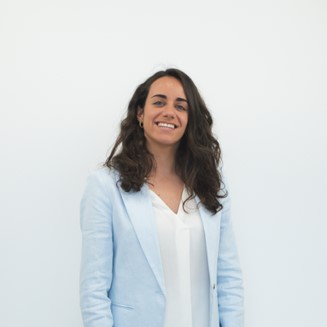 |
Luna Moreno Díaz Graduated with a Master’s in Industrial Engineering and a Master’s in Electrical Energy Systems from the University of Seville (US). She is responsible for renewable plant integration projects and R&D projects on smart distribution networks at Ingelectus. She has experience in project management, in the analysis of electrical data and in the development of simulation studies of electrical power systems. |
 |
José Luis Costela Guijosa Graduated in Telecommunications from the University of Granada (UGR) specializing in Telematics. He is a Software Engineer at Ingelectus Innovative Electrical Solutions S.L., working as a product developer. He has experience both in the use of Databases and in programming aligned with applications in the electricity sector. |
 |
Carlos Garcia Garay Software Engineering at the Polytechnic School of Cáceres. Working as a software developer in Ingelectus, besides being part of the support team of the plant controller (PPC) developed by Ingelectus. He has programming knowledge in both Front End and Backend, knowing the languages: Python, C++, JavaScript, and Golang, as well as React and Angular technologies. He also has knowledge of networking and telecommunications. |
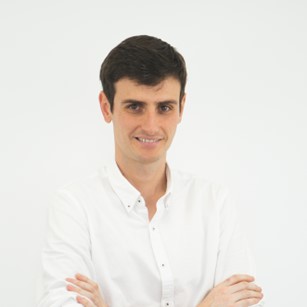 |
Mr. Julio Alejandro González Graduated in Computer Engineering – Computer Engineering from the University of Seville. He is responsible for software development at Ingelectus, designing and developing software solutions, as well as data modeling and architecture design. He has experience developing and managing cloud and microservice architectures for applications in the power sector. |
|
|
Konstantinos M. Gektidis Konstantinos M. Gektidis, born in Thessaloniki, Greece in 1998, holds an M.Eng. degree in electrical and computer engineering from Aristotle University of Thessaloniki (AUTh), Greece, earned in 2021. He is presently a Ph.D. candidate in the High Voltage Laboratory (HVL), AUTh. His research focuses on enhancing the surge protection systems for sensitive electronic equipment, particularly for advanced electrical and telecommunication applications such as electric vehicles, data centres, and energy storage systems. His research places a strong emphasis on developing innovative surge protection strategies and methods designed for targeted surge protection in low-voltage installations and distribution power networks. He serves as a teaching assistant at HVL and actively participates as a research assistant in projects supported by both state and industry funding. Additionally, he holds a position at HEDNO S.A. (Hellenic Electricity Distribution Network Operator S.A.), where he works in the European Union Funded COCOON research project. Within this position, his main focus is on overseeing the pilot implementation of the COCOON project in Greece. |
|
|
Apostolos N. Milioudis Apostolos N. Milioudis was born in Xanthi, Greece, in 1985. He received the Dipl.-Eng. and Ph.D. degrees in electrical and computer engineering from the Aristotle University of Thessaloniki, Thessaloniki, Greece, in 2007 and 2012, respectively. His research interests include power system protection and analysis, with special emphasis on the simulation of transmission and distribution systems, high impedance fault detection techniques, artificial intelligence applications in power systems, power line communications, and smart metering. From 2015, he is with the Hellenic Distribution Network Operator (HEDNO) S.A. and he is responsible for protection – automation system implementation as well as modernization of the medium voltage grid. |
|
|
Fotios Fotellis Fotios Fotellis graduated from Aristotle University of Thessaloniki (AUTH) in the department of Electrical and Computer Engineering, and his field of interest is Power Systems. His research is devoted to a future of 100% decarbonization and simultaneously the proper integration of the Renewable Energy Sources (RES) into the grid, resolving critical issues, such as stabilization, control, and resilience, providing thus better services for the customers. At present, he works as a freelancer researcher and holds a position at HEDNO S.A. (Hellenic Electricity Distribution Network Operator S.A.), taking part in the Cooperative Cyber Security prOtectiON (COCOON) project for modern power grids. HEDNO is the leader of the WP5 (Secure Energy Communities) and participates in numerous other tasks in other WPs. Fotios is involved in the software development, the configuration of a modern power grid, and testing the COCOON solution pilot under real conditions. Also, in HEDNO, he holds a position in the department of Research and Innovation for the Distribution System, contributing to the modernization and effectiveness of the system. |
|
|
Alejandro Rojano Padrón Graduated in Physics and Master in Renewable Energies at the University of La Laguna. Currently developing his doctoral thesis in electromobility at the same University. He joins Cuerva* in June 2023 to provide technical support to R&D projects, both national and European. Previously, he has worked as head of R&D in a startup dedicated to the installation of photovoltaic energy for self-consumption and charging points for electric vehicles. |
|
|
Esther Ayas Iglesias R&D Engineer with a degree in Industrial Chemical Engineering and a Master’s in Renewable Energies from the University of Jaén. |
|
|
Jorge Rueda Quintanilla Industrial Engineer, energy specialization. Also, holding the PMP certification with PMP ® number 1980333. In the company since 2020, currently working as R&D Manager. Before joining Cuerva, he worked as Program Manager and R&D Manager in two aeronautical companies for six years. Formerly involved in several national and international innovation projects about additive manufacturing, digitalization, or process automation also as Senior Project Coordinator. |
|
|
Marina Melero Muñoz Industrial Electronics Engineer by University of Granada. Before joining Cuerva* in 2023, she joined the workforce developing her degree Thesis in the automotive lighting sector. After that, she worked for 2 years and a half as a Graduate and Technical Sales Engineer in the electronic components sector. Interested in continuing to make use of her technical and soft skills to develop trusting relationships with colleagues and stakeholders. |
|
|
Pablo Blázquez Martín Degree in Electric Engineering at University of Oviedo, and master’s degree in electric energy conversion and power systems (EECPS), during the study period he worked for two years as a research assistant in different groups at the University of Oviedo, in the field of railway simulation focused on electricity consumption as well as in the generation of digital twins of low voltage networks for the control of transformers, and the study of the integration of DERs in the network, now in Cuerva the main role is as R&D researcher, working in different European founding projects as well as in the proposal of new ones, providing technical insight. |
|
|
Beatriz Jaldo Muñoz Civil Engineer by the University of Granada. In the company since 2020, she coordinates and leads the works and completions of the constructions of all projects of Cuerva´s greenfield renewable assets. More than 4 years of experience in the construction of projects mainly related with renewable assets and installations and electrical installations. |
|
|
Fernando Rubio Villar Fernando Rubio joined Cuerva to work on the technical and management side of the national and international R&D&I projects in which the company is involved, focused on the areas of Smart Energy and Smart Grids. He studied Electrical Engineering at the University of Malaga and has a post-graduate degree specializing in Home Automation, Energy Efficiency, and Technical Management of Buildings. He has previous experience in the area of Renewable Energies, especially in photovoltaic, wind, and its integration into SCADA control and management systems. |
|
|
Charis S. Demoulias Kontis Professor Charis S. Demoulias received the Dipl. and Ph.D. degrees in electrical engineering from the AUTH, in 1984 and 1991, respectively. Currently he is Associate Professor with the Electrical Machines Laboratory, Department of Electrical and Computer Engineering, AUTH. His research interests include power electronics, harmonics, electric motion systems, and the integration of renewable energy sources in the power grid. He has 50 publications in the fields of renewable energy sources, power quality and microgrids. From 1991 to 2003 he co-founded Alteren SA, a technical consulting company offering consultancy services in private and public energy-saving and renewable energy projects. From 1997-2003 he also acted as contractor for power quality projects (harmonic filters), industrial energy-saving projects and PV installations (stand-alone and grid-connected). He has participated as coordinator or partner in seven EU-funded projects and six national projects. Since 2011 he has been evaluator and reviewer of 25 EU-funded projects. He is senior member of IEEE and member of the Technical Chamber of Greece. Charis is the Coordinator of COCOON and he will be mainly involved in technical Work Packages WP2 and WP5. . |
|
|
Eleftherios O. Kontis Eleftherios O. Kontis received the Dipl. (Eng.) and Ph.D. degrees in electrical engineering from the Department of Electrical and Computer Engineering, Aristotle University of Thessaloniki (AUTH), Thessaloniki, Greece, in 2013 and 2018, respectively. From 2018 until 2021, he conducted post-doc research, focusing on the real-time assessment of the stability and the dynamic analysis of modern power systems. During his Ph.D and post-doc studies, he was a scholar of the Greek State Scholarship Foundation. He is currently a research associate with the AUTH. He also works as a power system engineer with the Southeast Electricity Network Coordination Center. He has nine years of experience as a researcher in EU Research Projects (FP7, H2020, and Interreg-Med). His main research interests include power system modeling and dynamic analysis, distributed generation, operation and control of active distribution networks, and real-time analysis of power systems through field measurements. Within the COCOON, Lefteris will participate in WP2 and WP5. |
|
|
Georgios C. Kryonidis Georgios C. Kryonidis received his Diploma and PhD degrees from the Department of Electrical and Computer Engineering (DECE) at Aristotle University of Thessaloniki (AUTH) in 2013 and 2018, respectively. From 2018 to 2021, he was an adjunct Lecturer at the DECE AUTH and at the University of Western Macedonia, Kozani, Greece. From 2021 to 2023, he worked as an Operations Engineer at South-East Electricity Network Coordination Center (SELENE-CC), in Thessaloniki, Greece. Currently, he is a Post-Doctoral Researcher at the DECE AUTH. He has a 10-year experience as a researcher in EU research projects (Horizon Europe, H2020, FP7, Interreg-Med). His research interests include distributed generation and storage, renewable energy sources, microgrids, and smart grids operation and control. He has co-authored 76 publications in the above fields. Finally, he is a Senior member of IEEE. Within COCOON, Georgios will be mainly involved in WP2 and WP5 activities. |
|
|
Alexandru Stefanov Alexandru Stefanov is Assistant Professor of Intelligent Electrical Power Grids at TU Delft, Faculty of Electrical Engineering, Mathematics and Computer Science, The Netherlands. He is Director of the Control Room of the Future (CRoF) Technology Centre in the Department of Electrical Sustainable Energy. His research interests are cyber security for power grids, resilience of cyber-physical systems, and next generation grid operation. He holds the professional title of Chartered Engineer from Engineers Ireland. Linkedin: linkedin.com/in/alexandru-stefanov |
|
|
Himanshu Goyel Himanshu Goyel is a Ph.D. scholar at TU Delft, specializing in Electrical Engineering with a focus on Cyber Security for Cyber-Physical Power Systems. His academic journey includes a master’s by Research in Electrical Engineering from the Indian Institute of Technology Madras, and a Bachelor of Engineering in Electrical Engineering from Mumbai University. His research interests include topics such as data integrity attack detection and cyber-physical system-enabled smart grid controller placement. He has contributed significantly to various projects, including the development of intrusion protection systems and machine learning-based security solutions for power networks. His professional experience spans roles at Technische Universiteit Delft, Rakuten Mobile Inc., and startup GridSentry, emphasizing his expertise in cyber security and power system resilience. |
|
|
José María Maza-Ortega José María Maza-Ortega is Professor in the Department of Electrical Engineering at the University of Seville. José María holds an Industrial Engineering degree, major in Electrical Engineering, in 1996, and a Doctor Engineering and European Doctor degrees in 2001, both from the University of Seville, Spain. His academic activity has focused in several undergraduate courses and the post-graduate Master Degree “Electric Power Systems”. José María is Head of the Joint Ph.D. Program “Electric Power Systems”, coordinated by the University of Sevilla and with the participation of the University of Malaga, Polytechnic University of Catalonia and University of the Basque Country. His research activity is developed within the research group “Electric Power Systems” led by Professor Antonio Gómez-Expósito. José María has participated in more than 60 R+D projects both publicly and privately funded, being principal investigator in 20 of them. Most of these projects have been developed in close cooperation with major companies of the electrical sector. He is coauthor of more than 80 technical papers, including 40 papers in high impact journals indexed in the Journal Citation Report (JCR) and 40 papers in international conferences, and 2 patents. José María is also co-founder of the starp-up Ingelectus – Innovative Electrical Solutions devoted to commercialize new solutions for the power grid of the XXI century. Within COCOON, José María will actively participate in activities to address cybersecurity issues considering the power system (WP2), the laboratory testing of the proposed solutions (WP3) and the validation on the Spanish pilot dealing with cybersecurity issues in PV power plants (WP8). |
|
|
Catalina Gómez-Quiles Catalina Gómez-Quiles is an Assistant Professor in the Department of Electrical Engineering at the University of Seville. Catalina received the engineering degree from the University of Seville, Spain, in 2006 and the M.Eng. Degree from McGill University, Montreal, QC, Canada, in 2008, both in electrical engineering. In 2012 she received the Ph.D. degree from the University of Seville. Her academic activity has focused in several undergraduate courses and the post-graduate Master Degree “Electric Power Systems”. Her research activity is developed within the research group “Electric Power Systems” led by Professor Antonio Gómez-Expósito. Her research interests include risk assessment in competitive electricity markets, and mathematical and computer models for power system analysis, especially focused on state estimation techniques and load flow, in which she developed her PhD thesis ‘Factorized solution of power system state estimation’. Catalina has participated in more than 30 R+D projects both publicly and privately funded, co-leading one of the State Plan 2013-2016 Challenge of the Spanish Ministry of Economy and Competitiveness. Most of these projects have been developed in close cooperation with major companies of the electrical sector. She is co-author of 15 papers in high-impact journals indexed in the Journal Citation Report (JCR), 15 papers in international conferences, and 4 book chapters. Catalina is also co-founder of the starp-up Ingelectus – Innovative Electrical Solutions devoted to commercialize new solutions for the power grid of the XXI century. Within COCOON, Catalina will actively participate in activities to address cybersecurity issues considering the power system (WP2), the laboratory testing of the proposed solutions (WP3), and the validation on the Spanish pilot dealing with cybersecurity issues in PV power plants (WP8). |
|
|
Manuel Barragán-Villarejo Manuel Barragán-Villarejo was born in Marmolejo, Spain, in 1984. He received the Electrical Engineering and Ph.D. degrees in electrical engineering from the University of Seville, Seville, Spain, in 2008 and 2014, respectively. Since 2008, he has been with the Department of Electrical Engineering, University of Seville, where he is currently an Associate Professor. His research career has been centered on the TEP-196 group, “Electrical Energy Systems”, where he has focused on the application of power electronics to distribution networks with the objective of integrating distributed energy resources, with a notable emphasis on the experimental validation. He has participated in over 20 research and development projects that have received public funding, as well as several private research and development contracts with companies in the electrical and industrial sectors. These include projects funded by the European Union. As an indicator of the quality of research activity, he has published 24 papers in international journals included in the Journal Citation Reports, 17 papers at international conferences, and two patents. Within COCOON, Manuel will actively participate in WP3, contributing to the validation and integration of cybersecurity techniques in the cyber-physical networks of the Department of Electrical Engineering at the University of Sevilla. |
|
|
Esther Romero-Ramos Esther Romero-Ramos is Professor in the Department of Electrical Engineering at the University of Seville. Esther holds an Industrial Engineering degree, major in Electrical Engineering, in 1991, and a Doctor Engineering degree in 1999, both from the University of Seville, Spain. Her academic activity has focused in several undergraduate courses and the post-graduate Master Degree “Electric Power Systems”. Esther is Head of the Joint International Master Degree “Ulysseus Cities”, coordinated by the University of Sevilla under the European University Ulysseus. Her research activity is developed within the research group “Electric Power Systems” led by Professor Antonio Gómez-Expósito. Esther has participated in more than 55 R+D projects both publicly and privately funded, being principal investigator in 13 of them. Most of these projects have been developed in close cooperation with major companies of the electrical sector. He is coauthor of more than 60 technical papers, including 26 papers in high impact journals indexed in the Journal Citation Report (JCR). Esther is also co-founder of the starp-up Ingelectus – Innovative Electrical Solutions devoted to commercialize new solutions for the power grid of the XXI century. Within COCOON, Esther will actively participate in activities to address cybersecurity issues considering the power system (WP2), the laboratory testing of the proposed solutions (WP3) and the validation on the Spanish pilot dealing with cybersecurity issues in PV power plants (WP8). |
|
|
Georgia Tsekou Georgia Tsekou is an experienced IT professional specializing in Information Security. She currently serves as an IT Analyst at Selene-CC, a Southeast Network Coordination Center providing coordination services for Transmission System Operators. In this role, Georgia facilitates communication and technical issue resolution between SOC, NOC, and Infrastructure teams, while managing Exchange and Active Directory environments, overseeing user settings, and maintaining system security. She plays a key role in ensuring compliance with ISO 27001 standards by establishing and maintaining robust Information Security Management Systems (ISMS). Additionally, she contributes to EU-funded projects like Horizon and Digit-EU, enhancing cybersecurity for SMEs and energy sectors, while conducting specialized audits for energy sector policies. Georgia holds a Bachelor’s degree in Computer Science from the Athens University of Economics and Business, where she specialized in Information Systems, Computer Systems, and Networks. She is also a Certified Ethical Hacker (CEH), accredited by EC-Council in 2022. Her technical expertise spans areas like hardware health monitoring, system optimization, and security policy implementation, making her a valuable contributor to the field of cybersecurity and critical infrastructure protection. |
|
|
Victor P. Papadopoulos Victor Piotr Papadopoulos is an accomplished IT professional specializing in system administration and cybersecurity. He is currently an IT Analyst at Selene-CC, a Southeast Network Coordination Center that offers coordination services for Transmission System Operators. In this role, Victor provides Level 2 Helpdesk support and ensures seamless communication and issue resolution across SOC, NOC, and Infrastructure teams. As a Microsoft 365 administrator, he manages critical tools like Exchange and Teams while implementing robust security measures and compliance standards. He also oversees on-premises Active Directory, administering user settings, Group Policy Objects (GPOs), and routine file server maintenance to maintain the integrity and functionality of the organization’s network infrastructure. Victor holds a BSc in Applied Informatics from the University of Macedonia, where he specialized in Technology Management and Information Systems. His academic foundation in Information Systems Analysis and Financial Risks Management complements his practical experience in IT infrastructure and cybersecurity. |
|
|
Elvira Sánchez Ortiz Elvira Sanchez Ortiz is a Security Consultant at the European Network for Cyber Security (ENCS). With a background on cybersecurity, through her time at ENCS, she has specialized in OT cybersecurity. At the ENCS she is involved in performing risk assessment, creating security requirements for procurement of industrial control systems, delivering cybersecurity training for grid operators, ensuring ENCS members are aware of relevant cybersecurity legislation, and is currently managing COCOON at ENCS side. |
|
|
Salvatore Maccarrone Salvatore Maccarrone is a Security Consultant at the European Network for Cyber Security (ENCS). With a background on computer science engineering, through his time at ENCS, he has specialized in OT cybersecurity. At the ENCS he delivers cybersecurity training for grid operators, doing evaluates intrusion detection systems for OT environments, and is currently working on COCOON at ENCS side. |
|
|
Evangelia Lianou Evangelia Lianou is an Electrical and Computer Engineer with a diverse professional background spanning software development, education, and large-scale electrical system projects. Evangelia studied at the Aristotle University of Thessaloniki – School of Engineering, Department of Electrical and Computer Engineering. She completed a postgraduate program in “Management and Economics” with a specialization in “Business Administration” from the Department of Economics at the Aristotle University of Thessaloniki. |





